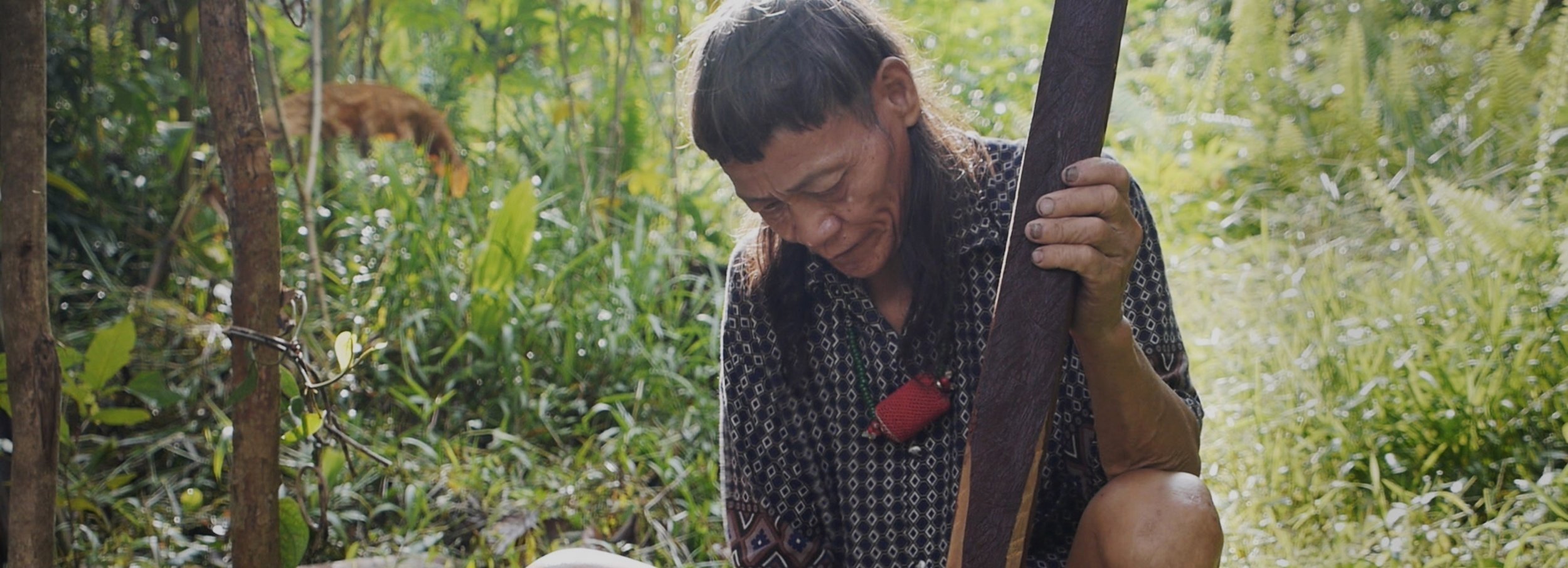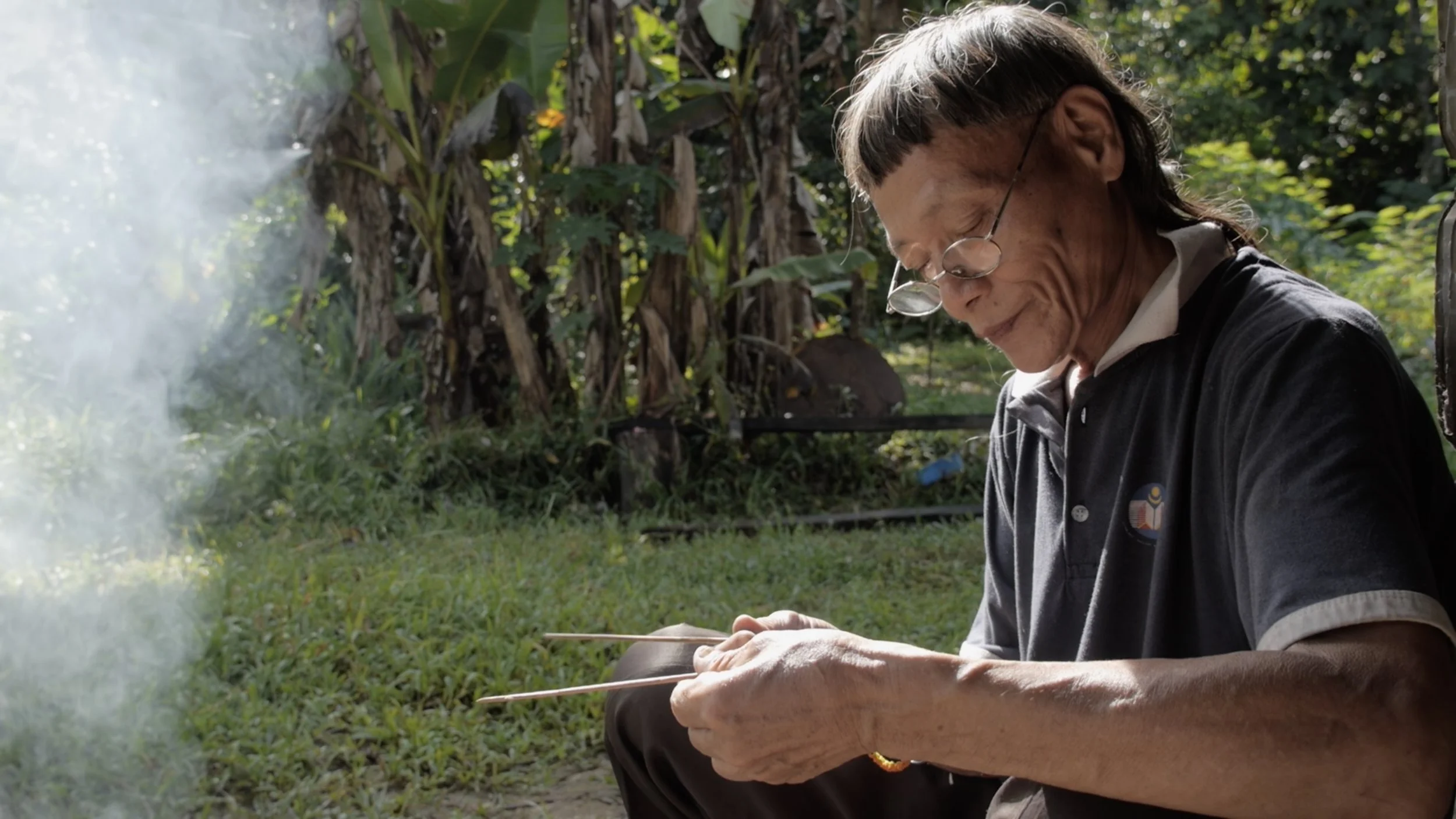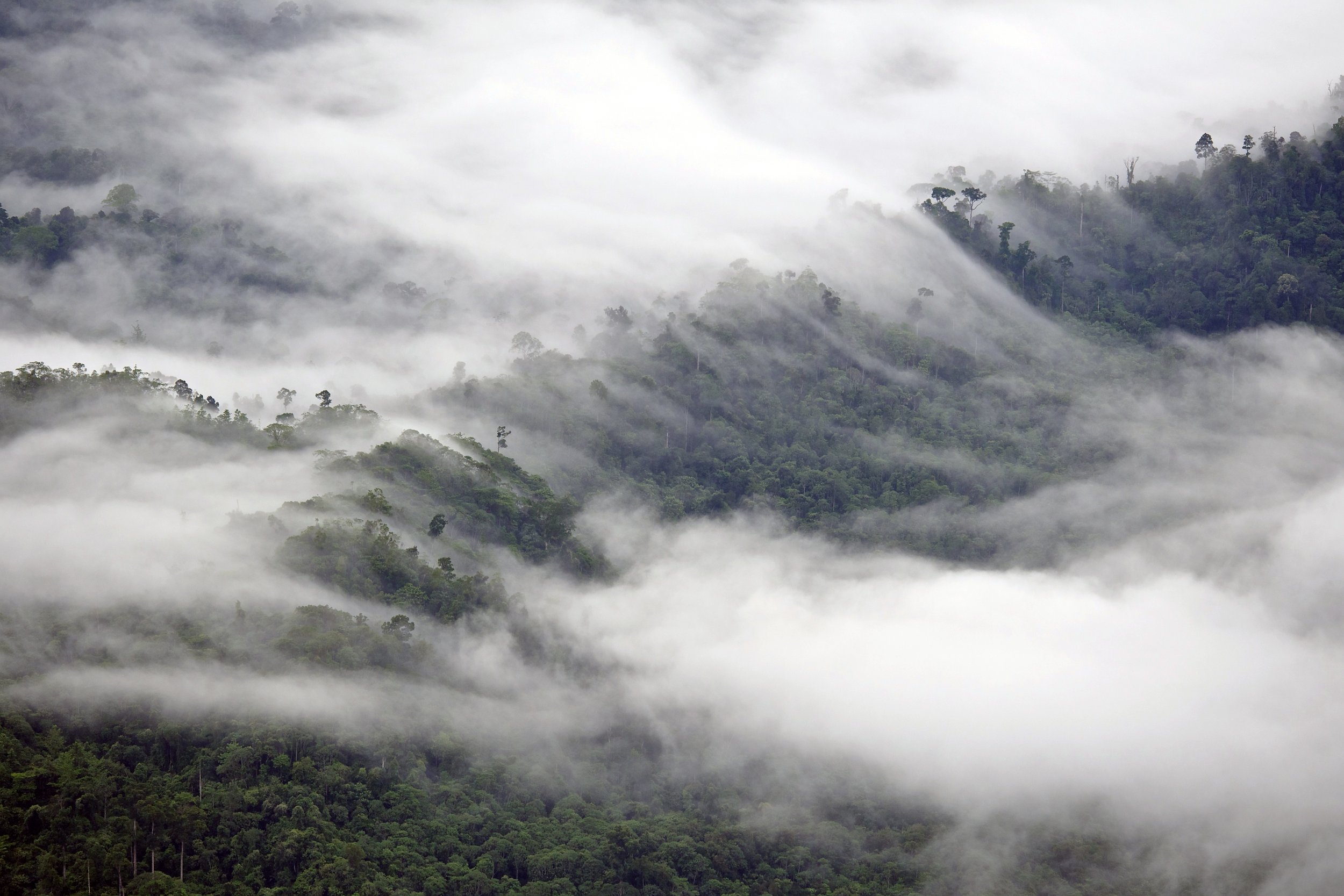
Sunset Over Selungo
From a remote village, deep in the rainforest of Borneo, comes an inspiring true story about freedom and belonging.
// independent documentary
Sunset Over Selungo is a 30-minute journey into the jungle, following Dennis, Unyang, Sia and Balan of the Penan tribe. It was filmed in Sarawak, Malaysia, in 2013.
It supports a campaign to help the Penan tribe protect their rainforest home.
The full documentary is available to watch for free by clicking on the player, or on Vimeo and YouTube.
Scroll down for the background to the project, plus see excerpts and a video of the community reaction.

The background
Borneo is the third largest island in the world. It holds some of the oldest and most precious ecosystems on the planet and is home to an amazing diversity of indigenous cultures. It is split into three countries: Indonesia, Brunei and Malaysia. Malaysian Borneo is split into the states of Sabah and Sarawak.
The Selungo river runs through a remote network of valleys in the highland interior of Sarawak. Dense forests cover the steep slopes and ridges, blanketing the land into the distance. The Penan people are the original inhabitants of these forests. The Selungo valley is one part of their homeland.
Until the mid twentieth century, groups of the Penan tribe lived on the move, hunting wild boar and deer, fishing and gathering fruit, plants and sago from the jungle. This traditional nomadic culture underwent a radical change when Christian missionaries arrived and encouraged church-building. For the first time, the Penan started building permanent settlements and growing rice.
Despite these changes, the traditional tribal culture lives on. The Penan number around 10,000 people, spread across many villages. Although guns have appeared, blowpipes and poison darts are still used and often favoured for hunting because they are silent. Medicinal plants are collected from the rainforest to treat illnesses, and rattan - the fibres of a wild palm - is woven into mats and baskets. The Penan still speak their own language, distinct from those of other tribal groups.
However, the rights of tribal peoples have been largely ignored by the government of Sarawak. The state leadership has granted logging companies concessions to most of its forests, without properly consulting the people who have always lived on those lands. This means the companies have permission from the state government to cut the Penan’s forests down.
Photograph by Rodney Needham
Satellite image analysis shows that a staggering 89 percent of the rainforests in Sarawak have been heavily impacted by logging, with much of the forest completely destroyed.
Threatened with the destruction of their livelihood, the Penan gathered together in the 1980s and 1990s to defend their homeland. They built blockades to prevent loggers reaching their forests and protested to the government. Vast areas of forest were lost, but one of the groups that managed to hold back the loggers to some extent were the Penan from the Upper Baram area, which includes the Selungo valley.

Protecting the rainforest
A campaign to establish the Baram Peace Park is underway. This would preserve one of the last pockets of unspoilt rainforest in Malaysian Borneo and recognise the rights of tribal peoples to control the land they have always lived on.
What is the Baram Peace Park?
In 2009, 18 Penan villages united to create a proposal for a new protected area. The aim: to guard their lands against loggers and preserve their culture for generations to come.
Although the Penan communities have always lived here, they do not have official title deeds to their land because the government has not provided them. There is a risk logging companies will try and bribe the villages to sign away their land rights forever, and loggers still continue to encroach further into the territory.
Until the Baram Peace Park is officially recognised and adequately protected in law, then the risk of complete deforestation remains.
The area around Selungo is one of the last untouched pockets of jungle left. The Penan villages in Upper Baram, as well as other local indigenous groups, are calling out for support as they struggle to defend their land.
“The PPP will be a place where humanity and nature are living in harmony, where the quality of life and livelihood are secured for both present and future generations, and a place where economic and human development are socio-culturally and ecologically sustainable.” - Peace Park Proposal, 2012

Balan the blowpipe maker
Watch a special extract from the full documentary below.
See the painstaking process of carving a blowpipe, the unique hunting tool used by the Penan. The weapons are still used by some members of the tribe for hunting with poison darts, but Balan Kade was the last person in his village who knew how to make them.
Balan died in 2020 and I was very sad not to get another chance to meet him. His patience, his skill and most of all the magic in his character shines through in the film. The fact that millions of people have watched his videos shows what a special man he was, and I’m sure if you haven’t seen them yet, he’ll make you smile too.
The short film was awarded a Vimeo Staff Pick, featured on National Geographic’s YouTube, The Atlantic, and various other online channels.
A year after my first visit, I returned to Upper Baram. On that second trip I made a new short film with Balan - this time he shared his rare knowledge of making 'tajem', the poison the Penan carefully prepare to hunt with.
Finally, here is a short film of that return trip to Borneo, and some of the reactions from the community and contributors when they saw themselves in the film.






